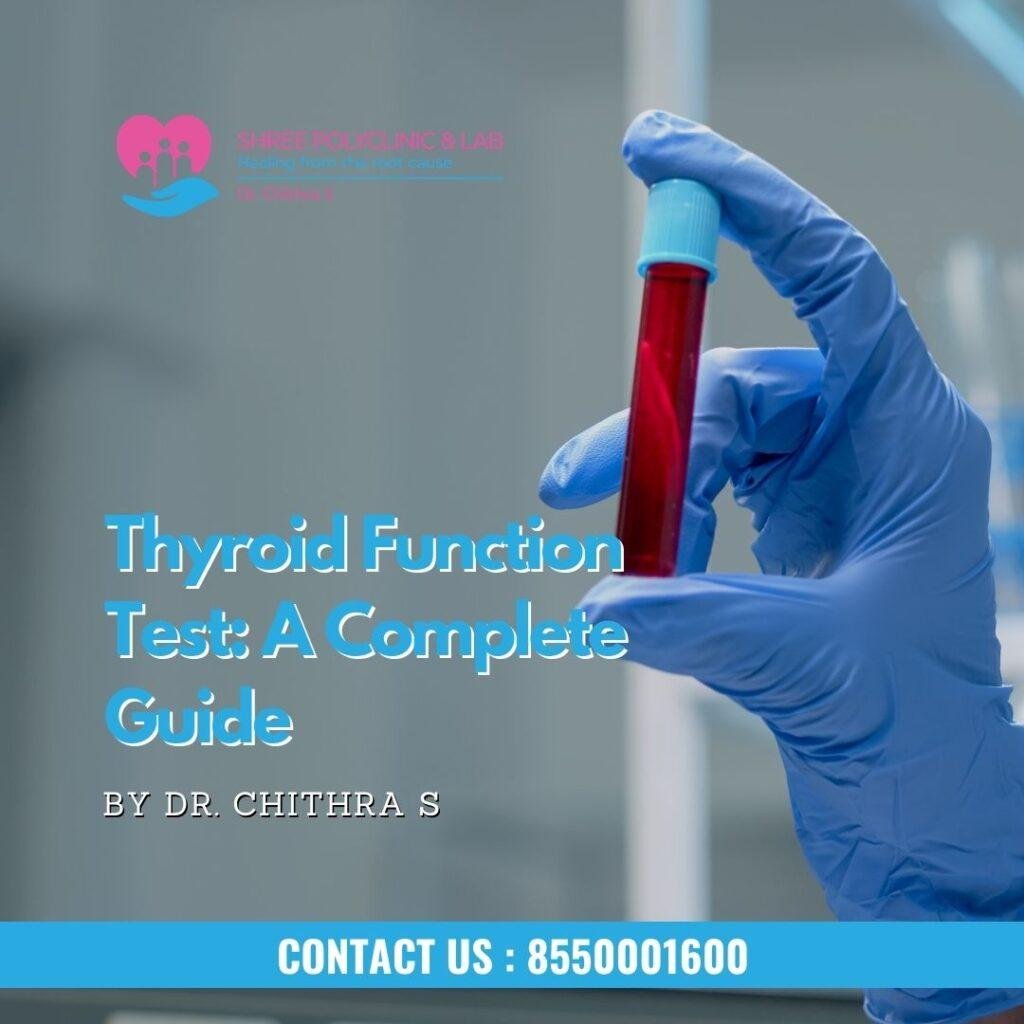Thyroid function tests (TFTs) are essential for diagnosing and managing thyroid disorders like hypothyroidism, hyperthyroidism, and other thyroid-related conditions. If your doctor has recommended a thyroid test, proper preparation can ensure accurate and reliable results.
In this guide, we’ll cover everything you need to know before your thyroid test, including what to eat, medications to avoid, and common mistakes to prevent.
What is a Thyroid Function Test?
A Thyroid Function Test (TFT) is a blood test that measures levels of key thyroid hormones and markers, including:
- Thyroid-Stimulating Hormone (TSH) – Regulates thyroid activity
- T3 (Triiodothyronine) & T4 (Thyroxine) – Primary thyroid hormones that control metabolism
- Free T3 & Free T4 – Active forms of thyroid hormones
- Thyroid Antibodies – Help diagnose autoimmune thyroid disorders like Hashimoto’s and Graves’ disease
How to Prepare for a Thyroid Function Test
1. Check with Your Doctor About Fasting
- In most cases, fasting is not required for a thyroid test. However, some doctors may recommend a 12-hour fasting period for more precise readings, especially for T3 and T4 levels.
- If your doctor has not instructed you to fast, you can eat as usual before the test.
2. Take Your Thyroid Medications at the Right Time
- If you are already on thyroid medication (e.g., levothyroxine, liothyronine), do not take it before the test unless instructed otherwise.
- Many doctors advise taking your medication after the blood draw to prevent interference with test results.
3. Avoid Certain Medications and Supplements
Some medications and supplements can affect thyroid hormone levels. Inform your doctor if you are taking:
✔️ Biotin (Vitamin B7) – Can interfere with TSH, T3, and T4 readings. Avoid for 48 hours before the test.
✔️ Steroids, Beta-blockers, and Estrogen-containing medications – May influence thyroid hormone levels.
✔️ Iron and Calcium Supplements – Can affect thyroid hormone absorption.
✔️ Iodine Supplements or Contrast Dyes – Can alter thyroid function temporarily.
4. Best Time of the Day for Testing
- Thyroid hormone levels fluctuate throughout the day.
- The best time for a thyroid function test is in the morning, between 7 AM – 10 AM, when hormone levels are most stable.
5. Reduce Stress and Get Good Sleep
- Stress and lack of sleep can influence TSH levels, leading to misleading results.
- Ensure you get adequate rest (at least 7-8 hours of sleep) the night before your test.
- Practice relaxation techniques like deep breathing or meditation to keep stress levels low.
6. Avoid Heavy Exercise Before the Test
- Intense exercise can temporarily alter thyroid hormone levels.
- Avoid strenuous workouts 12-24 hours before the test for accurate readings.
7. Eat a Balanced Diet the Day Before
- Avoid excessive iodine-rich foods (e.g., seaweed, iodized salt, dairy) before the test, as they can affect thyroid function.
- Stay hydrated by drinking plenty of water.
What to Expect During the Thyroid Test?
- The test is a simple blood draw, usually from a vein in your arm.
- It takes only a few minutes, and you can resume normal activities afterward.
- Results are typically available within 24-48 hours, depending on the lab.
Interpreting Thyroid Test Results
Your doctor will analyze your results based on reference ranges:
| Test | Normal Range (May vary by lab) |
|---|---|
| TSH | 0.5 – 4.5 mIU/L |
| Free T4 | 0.7 – 2.0 ng/dL |
| Free T3 | 2.3 – 4.1 pg/mL |
| Total T4 | 5.0 – 12.0 µg/dL |
| Total T3 | 80 – 180 ng/dL |
| TPO Antibodies | < 35 IU/mL |
Note: Ranges may differ slightly based on age, gender, and lab standards. Your doctor will interpret the results accordingly.
Final Tips
✅ Follow your doctor’s specific instructions for test preparation.
✅ Avoid unnecessary stress or dietary changes right before the test.
✅ Inform your doctor about any medications or supplements you are taking.
✅ Schedule your test in the morning for the most accurate results.
By following these guidelines, you can ensure your thyroid function test results are accurate, helping your doctor make the best treatment decisions for your thyroid health.

